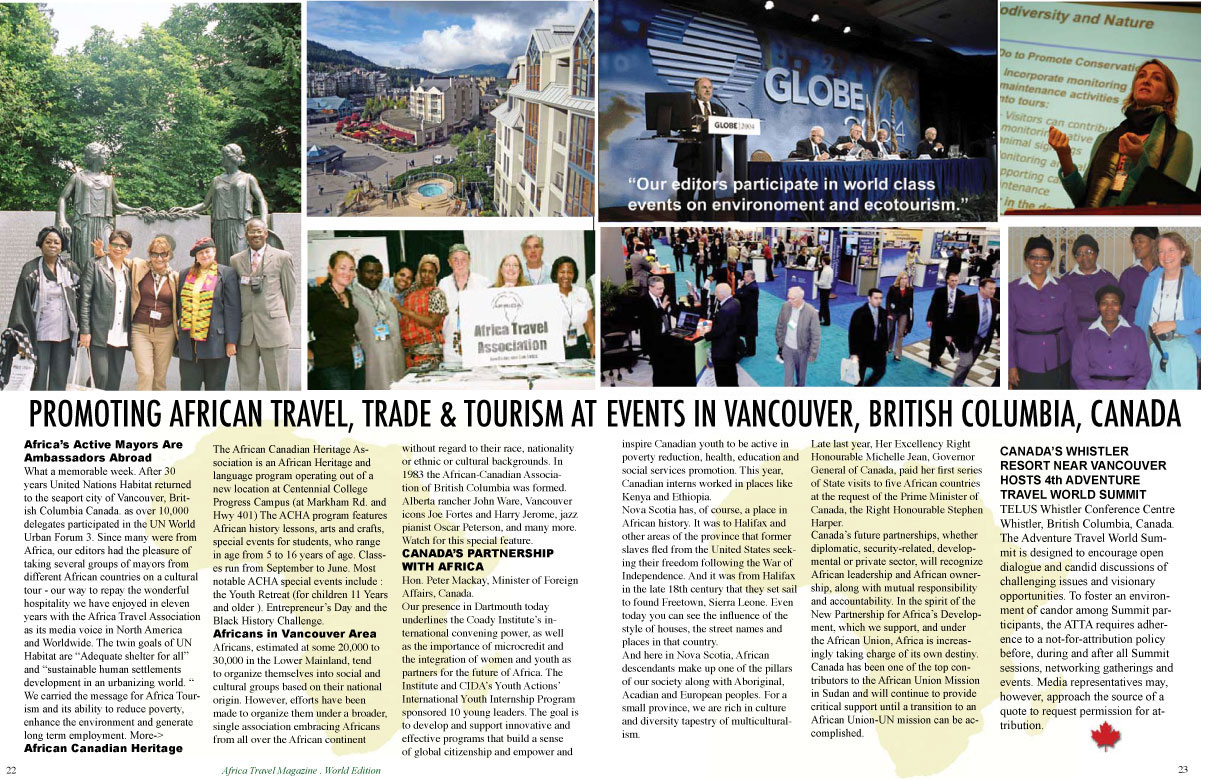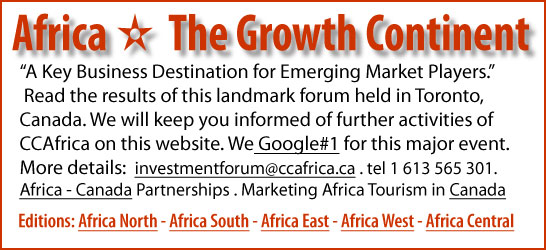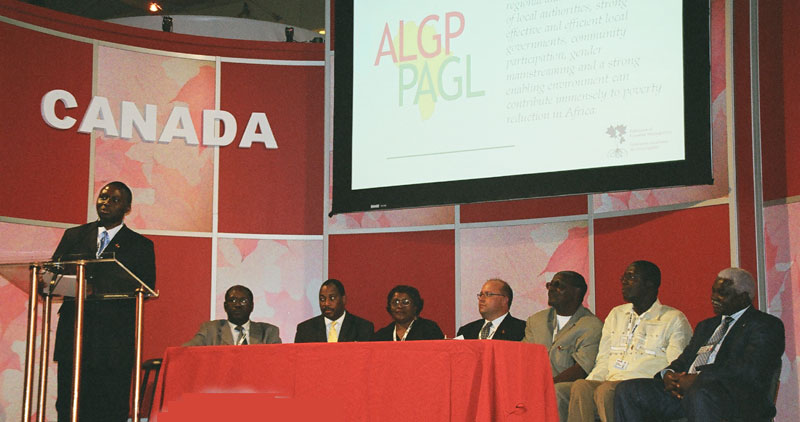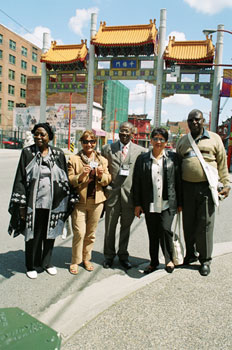
|
|
|
|


|
|
|
|

Templar Kalundu Iga Africa is brimming with economic opportunity, and Canada can be a pivotal partner. But it must go beyond humanitarian gestures.
As global powers like China and Russia deepen their involvement in Africa, Canada stands at a pivotal juncture when it comes to its place on the world stage.
In these times of shifting geopolitical landscapes and economic realignments, Canada must swiftly implement a comprehensive strategy that sets new diplomatic and economic priorities recognizing Africa’s significance beyond humanitarian gestures. It must seize the opportunities it presents, or risk marginalization.
Strategic groundwork for enhanced engagement with Africa started in 2022, when the prime minister appointed Mary Ng, minister of Export Promotion, International Trade and Economic Development, to spearhead the Canada-Africa Economic Cooperation Strategy (CA-ECS).
Over two years of extensive public consultations and resounding affirmations of Africa’s pivotal role as a partner, the strategy has regrettably failed to yield tangible progress.
By comparison, Canada’s Indo-Pacific Strategy is backed by a substantial $2.5-billion commitment. But the federal budget released in April allocated $900 million for humanitarian assistance, offering no support for the CA-ECS agenda. It is disappointing.
The budget only reinforced the narrative that the African continent is dependent on international assistance rather than being an equal stakeholder in Canada’s international strategic vision.
A strategic shift in Canada’s engagement with African states and the African Union entails branching out while leveraging economic assistance and infrastructure development as tools for building political alliances. By investing in Africa’s development initiatives, Canada can position itself as a pivotal partner in the continent’s growth trajectory.
Central to this recalibrated approach is recognizing Africa not merely as a Canadian humanitarian concern but as a region brimming with economic potential. With opportunities spanning renewable energy, critical minerals, and technological innovation, the continent presents a trillion-dollar economic opportunity for Canada.
A new Canada-Africa policy has the capacity to unlock a plethora of opportunities for increased trade, investment, innovation and Tourism
By recognizing Africa as not just a recipient of aid, but also as a dynamic and vibrant partner, Canada can unlock new opportunities for collaboration and contribute to the continent’s sustainable development while advancing its own interests on the world stage.

Our Google score for Marketing Africa Travel to Canada
Candid Camera at Globe 2010, Vancouver
Video: World Culinary Expo, Vancouver
Video: Cruise3Sixty Expo, Vancouver
Airline Industry Routes Forum, Vancouver
MARKETING AFRICA TOURISM TO CANADA
YEARBOOK EDITION
Africa Visit with Canada's Governor General Michaelle Jean
Governor-General Michaëlle Jean has acknowledged Canada's failure to respond to the Rwandan genocide as part of the international community. During a state visit to the country Wednesday, she conveyed the guilt of the many nations accused of ignoring the 1994 crisis in a statement delivered during a meeting with President Paul Kagame, a leader of the Tutsi rebel uprising.
Media Tour
From Wednesday April 14th, 2010 to Saturday April 24th, 2010, Ben Peterson, the Executive Director and Co-Founder of jhr (Journalists for Human Rights), accompanied Canada's Governor General, Her Excellency Michaëlle Jean and a team of Canadian delegates to undertake State visits to The Republic of Senegal, The Democratic Republic of the Congo, the Republic of Rwanda and Cape Verde. "This is a wonderful opportunity for jhr to showcase the importance of the media in the development of Sub-Saharan Africa," says Mr Peterson. Mr Peterson, Her Excellency and team were greeted by the heads of state of each visited country. They will tour each state, visitingmemorial sites, hospitals, military sites, Canadian funded day care centers, slave trade sites, local civil society and NGO's and various other Canadian funded projects. On Friday April 16, in Dakar, Senegal Mr Peterson will participate in a panel discussion on the role of the media in the emergence of a new Africa, hosted by Michaëlle Jean. The panel discussion, organized by the Canadian Embassy in Senegal in cooperation with CESTII will take place at the University Cheikh Anta Diop in Dakar. For a complete itinerary please visit http://www.gg.ca/document.aspx?id=13586 For more information on the delegates please visit http://www.gg.ca/document.aspx?id=13584.
The Africa Travel Association Canada Chapter welcomes you as a member and provides FULL SUPPORT in your business - locally and at events around the world. This edition covers past and future events where the ATA CANADA CHAPTER played a key role. Apply for membership now Click here - or contact us direct - airhwy@smartt. comCanada on the African market for education
Brothers of the Christian churches to teachers new technology, Canadian resources contributed significantly to education and training of generations of Africans. Many examples are there to show their importance.The '50s marked the real kickoff of training missions on African soil. In the wake of European settlers, mainly French and Belgian, French Canadians, as they were called at that time will be invested by the good graces of the Vatican to come to contribute to the educational efforts of a youth full ideological break.This will be followed later by involvement of the Canadian government spends, since a budget to the development of courses of training and learning. The formation of this skilled labor is even more important and necessary it can move more rapidly to a development control. Education and development of specific programs of vocational and technical training are popular and Canada's bilingualism is an asset non-negligible. What makes that radius organizations, we had already echoed the Association of Canadian Community Colleges (ACCC) which includes over a hundred institutions, technical institutes and vocational colleges and colleges.The importance of vocational trainingThis group has already piloted the Program Canadian College Partnership, which was designed to encourage Canadian institutions to strengthen the capacity of educational institutions and training in developing countries to meet their priorities for sustainable growth. This project, conducted between 2001 and 2007 with funding from the Canadian International Development Agency (CIDA), had helped to achieve over 120 projects in various fields.In the same vein, a new program called Global Citizens was set up and will organize educational activities in real time between Canada and Caribbean countries and Africa. Students and teachers involved will have the opportunity to study the reduction of poverty and other development topics, which will give them an idea of global problems and will increase the participation of young Canadians International Development.
This initiative over two years, is one of the new elements of the modernized program of CIDA's partnerships, and is valued at $ 2.4 million.
In the same vein, the Association of Universities and Colleges of Canada (AUCC) and its 95 member universities have completed more than 2,000 international development projects over the past 30 years, much of which in Africa .To this end, the focus was on improving human resources from other countries to help them raise their standard of living.
In all, more than 150 scholarship programs, research and courses that are conducted on behalf of governments, foundations, and private sector companies.
As shown, the public part is pretty well wrapped even though many lament the boom years of Canadian cooperation in which graduates of vocational schools were completing their training in North America.
On the private side, finally, Canadian companies are now at the forefront of education and training. Which is a gain for African countries is also good for the Canadian groups, in "formatting" in some way these future workers or managers, also make sure to be a relay for the Canadian industry. Thus are born the markets induced in the wave of educational networks.
We thus find regular Canadian resources in new technologies, industrial and civil engineering or management. Key areas for development.
|
|
||||||||||||||||||||||||||||||||||||||||||||||||||||
|
|
|
||||||||||||||||||||||||||||||||||||||||||||||||||

The twin goals
of Habitat are "Adequate shelter for all" and
"sustainable human settlements development in an
urbanizing world. "The "Global Village" is well
represented, this week - with Africa making a
particularly strong showing. As publishers of
Africa Travel Magazine and related travel business
media features, we were extremely pleased and
honored to be able to to network with so many of
our African colleagues.
More-> African
Canadian Associations.
Google
Search MORE ABOUT
AFRICANS IN CANADA AND THE HISTORIC TIES BETWEEN
OUR GOVERNMENTS - TO APPEAR ON THIS PAGE AND
SECTION.
Africa panel at UN World Urban Forum 3, Vancouver, BC, Summer
2006
Who's #1 on Google, Yahoo and MSN in
Searches for Many African Topics?
![]()
African Mayors Take Active Role at UN World Urban
Forum 3 in Vancouver, Canada. Great Cities of
Africa Series Launched
by Jerry W. Bird, Editor

 What
a memorable week. After 30 years UN Habitat returns
to its launching pad - the seaport city of
Vancouver,
British Columbia Canada. The crowd is estimated at
10,000 plus and it certainly seems so, judging by
the heavy attendance at many sessions. At the time
of writing, we have had the pleasure of taking two
groups of mayors representing different African
countries on tours of Vancouver and the University
of British Columbia. It's one way for us to repay
the wonderful hospitality we have enjoyed in eleven
years with the Africa Travel Association as its
media voice in North America and
Worldwide.
What
a memorable week. After 30 years UN Habitat returns
to its launching pad - the seaport city of
Vancouver,
British Columbia Canada. The crowd is estimated at
10,000 plus and it certainly seems so, judging by
the heavy attendance at many sessions. At the time
of writing, we have had the pleasure of taking two
groups of mayors representing different African
countries on tours of Vancouver and the University
of British Columbia. It's one way for us to repay
the wonderful hospitality we have enjoyed in eleven
years with the Africa Travel Association as its
media voice in North America and
Worldwide.
Africans in
Canada Study: Click
for detailed information
Africans
in Vancouver area:
Africans, estimated at some 20,000 to 30,000 in the
Lower Mainland, tend to organize themselves into
social and cultural groups based on their national
origin. However, efforts have been made to organize
them under a broader, single association embracing
Africans from all over the African continent
without regard to their race, nationality or ethnic
or cultural backgrounds. In 1983 the
African-Canadian Association of British Columbia
was formed. :Click
for full story
African
Canadian Heritage
Association
The
African Canadian Heritage Association is an African
Heritage and language program operating out of a
new location at Centennial College Progress Campus
(at Markham Rd. and Hwy 401).The ACHA program
features African history lessons, arts and crafts,
special events for students, who range in age from
5 to 16 years of age.Classes run from September to
June. Most notable ACHA special events include :
the Youth Retreat (for children 11 Years and older
). Entrepeneur's Day and the Black History
Challenge. Website